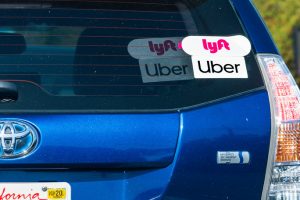Determining whether a worker is labeled an employee or an independent contractor produces several consequences. One of the most important consequences concerns workers’ compensation insurance.
Overview of Workers’ Compensation
If an eligible employee gets hurt while on the job, the employee can recover the cost of lost wages and medical care by applying for workers’ compensation. Considered a no-fault benefits system, an employee does not have to prove the employer caused the workplace accident that led to one or more injuries. If an employee wants to sue an employer for a personal injury, the employee must prove the employer was at fault for causing the accident. Personal injury lawsuits typically cover the costs not covered by workers’ compensation.
Workers’ Compensation: Employees and Independent Contractors
The State of California requires employers to buy workers’ compensation insurance for each employee. However, employers do not have to purchase workers’ compensation insurance for the independent contractors that they temporarily hire. California has established several tests that determine whether a worker is an employee or an independent contractor. The most important test involves determining how much control an employer has over a worker, such as deciding operational processes for workers.
How are Rideshare Drivers Classified?
Rideshare companies have to decide whether their drivers are employees or independent contractors. Until recently, the companies decided that drivers should be classified as independent contractors. Drivers operate their vehicles, pay for their gas, and have the flexibility to work for competitors. Rideshare companies provide drivers with an app that acts as the heartbeat of the business.
Drivers have argued for years that they are employees because the companies they work for determine how much the drivers can charge per ride. They also have to follow rules or run the risk of losing their jobs. Drivers also argue they are vital to the success of a rideshare business, as well as point out that cab companies must purchase workers’ compensation insurance for their drivers.
As of November 2020, a rideshare driver that gets hurt while working does not qualify for workers’ compensation benefits. Nonetheless, recent legal actions in the State of California indicate that is about to change.
Recent Legal Action
Major rideshare companies like Uber and Lyft are under intense pressure to change the way they label drivers. Both companies claim drivers prefer working as freelancers, while union representatives and a growing number of political leaders demand rideshare companies classify workers as employees.
On August 10, 2020, Judge Ethan Schulman of the California Superior Court based in San Francisco ruled Uber and Lyft must classify their drivers as employees. Judge Schulman stated that rideshare drivers are “central, not tangential,” to the rideshare business model. Uber and Lyft plan to appeal the decision
Over the past five years, several drivers have filed lawsuits that challenged the labeling of rideshare drivers as independent contractors. In one of the lawsuits, an Uber driver sued the company because of the injuries the driver suffered because of an attack by a passenger. A separate lawsuit in a San Francisco federal court seeks to classify rideshare drivers as employees.
If you work as a rideshare driver and have suffered an injury while on the job, you should speak with a California-licensed workers’ compensation attorney. A workers’ comp lawyer can discuss how the process unfolds, as well as explain the latest legal developments concerning the classification of rideshare drivers.
Call PLBH Law Firm at (800) 435-7542 or submit the short online form to schedule a free case evaluation.

